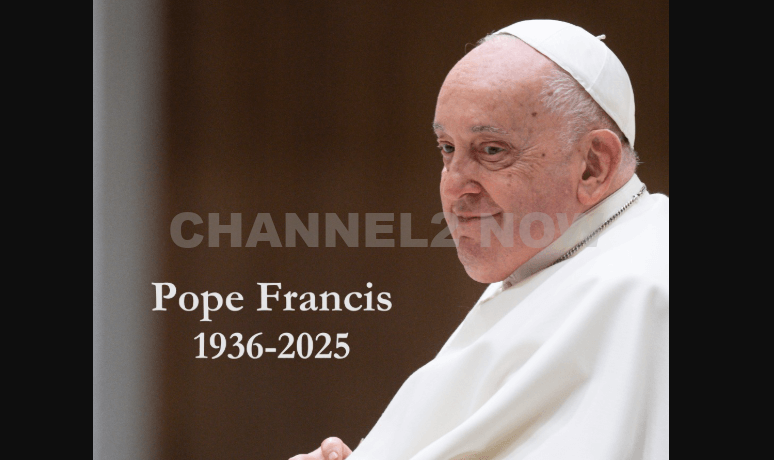World
Vatican Confirms Pope Francis Died from Cerebral Stroke Followed by Irreversible Heart Failure

The Vatican has officially confirmed that Pope Francis died from a cerebral stroke, which led to a coma and ultimately resulted in irreversible heart failure.
The announcement was made in a statement released shortly after his passing.
Although Pope Francis did not preside over Easter Mass at St. Peter’s Basilica this year, he made a brief public appearance at the conclusion of the service to deliver his “Urbi et Orbi” (“to the city and to the world”) Easter message.
The speech, a traditional papal address given twice a year, was read aloud by an aide just one day before his death.
In the wake of his passing, the Vatican initiated its first public act of mourning—a Rosary prayer service held in St. Peter’s Square at sunset.
The solemn gathering was led by Cardinal Mauro Gambetti, Archpriest of St. Peter’s Basilica.
The first reading was delivered by Sister Raffaella Petrini, Secretary General of the Governorate of the Vatican City State and one of the highest-ranking women in Vatican leadership.
Her role exemplified Pope Francis’ commitment to increasing the involvement of women in decision-making positions within the Church.
Among the many tributes pouring in from around the world, U.S. President Donald Trump reflected on Pope Francis’ legacy during remarks at the annual White House Easter Egg Roll, saying, “He was a very good man who loved the world.”
Pope Francis is widely remembered as a transformative figure within the Catholic Church.
Known for his humility and progressive tone, he sought to challenge longstanding institutional norms. Jesuit scholar Thomas Reese once observed that Francis worked to “change the style of being Pope, attack clericalism, empower the laity, open the church to conversation and debate, and shift the pastoral and public priorities of the Church.”
Further arrangements regarding the funeral and conclave will be released in the coming days as the Vatican enters an official period of mourning.
Crime
Tumbler Ridge Secondary School Shooter Jesse Van Rootselaar Created Mall Shooting Simulator in Roblox

Investigators and online researchers have identified a Roblox account allegedly linked to Jesse Van Rootselaar, the 18-year-old suspect in the deadly mass shooting at Tumbler Ridge Secondary School in British Columbia.
According to platform officials, the account was discovered by users on the internet forum Kiwi Farms, who reported that Van Rootselaar had created a game — referred to on Roblox as an “experience” — that simulated a shooting inside a shopping mall.
The virtual environment appeared to resemble a Canadian retail complex, although it has not been confirmed whether the design was intended to replicate a specific real-world location.
Videos circulating on social media prior to its removal showed a player-controlled character collecting weapons and firing into crowds of animated civilians within the mall setting.
The footage quickly drew widespread concern given the seriousness of the real-world attack.
Roblox confirmed that the account belonged to the suspect and announced swift action in response.
“We have removed the user account connected to this horrifying incident, as well as any content associated with the suspect,” the company said in a statement. “We are committed to fully supporting law enforcement in their investigation.”
Initially, reports suggested the game remained accessible despite the account being deleted. However, Roblox later clarified that the content has now been removed from the platform.
The company also noted that the mall-themed experience was only accessible through Roblox Studio, a development application used by creators to build games, rather than through the main platform available to general users.
As a result, the experience reportedly recorded only seven visits, indicating extremely limited exposure.
Investigators are continuing to examine the suspect’s digital footprint, including online posts and usernames believed to match across multiple platforms such as Reddit, where references to Roblox activity were also reportedly found.
Van Rootselaar is accused of carrying out the February 10 shooting that left eight people dead and at least 25 others injured at the secondary school.
Authorities have not indicated whether the online content forms part of the official investigative findings, but technology platforms are increasingly scrutinized in the aftermath of violent incidents for potential warning signs.
Officials emphasize that the broader investigation remains active as law enforcement works to establish a complete timeline, understand possible motives, and determine whether any additional factors contributed to the tragedy.


